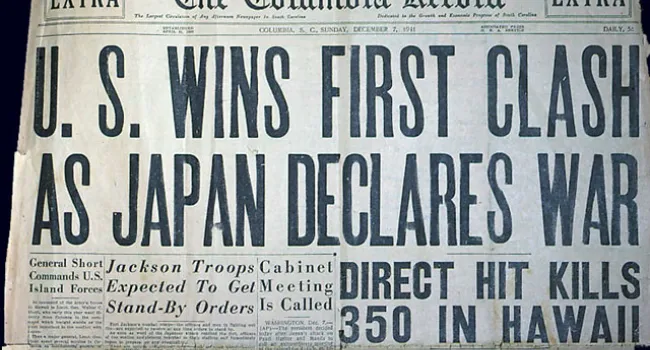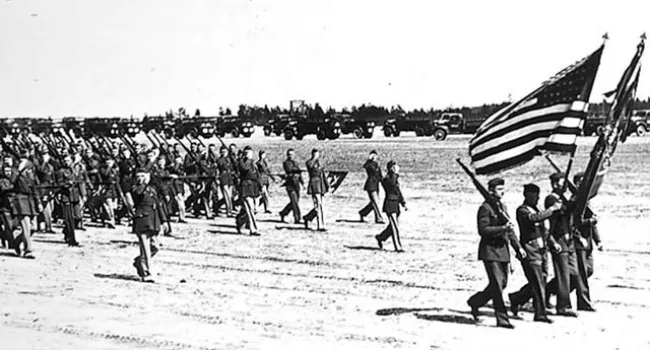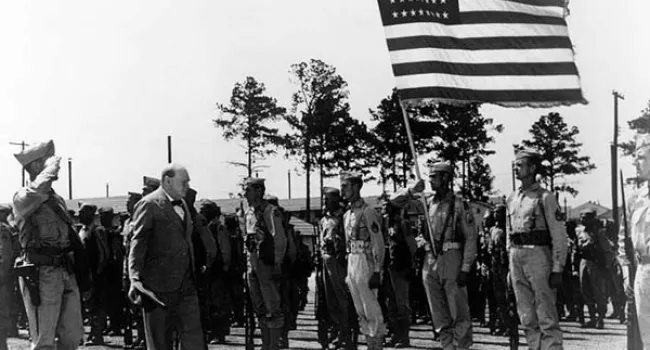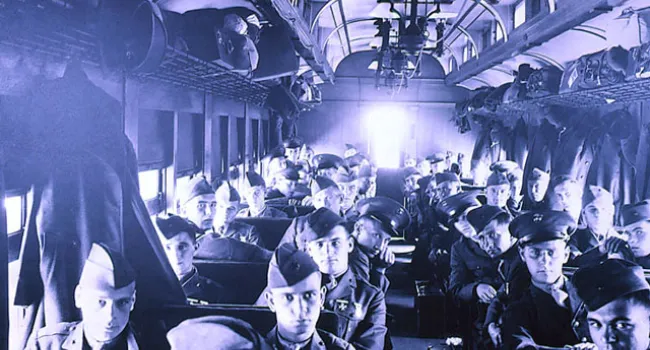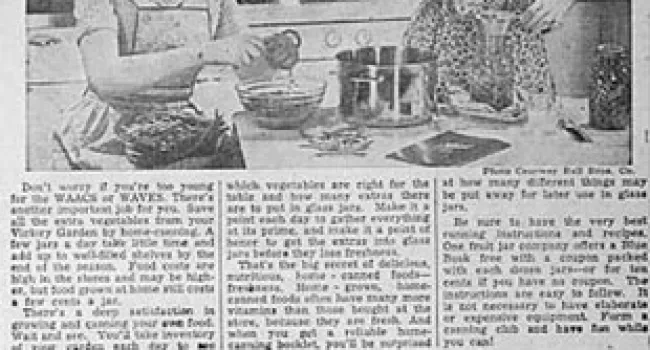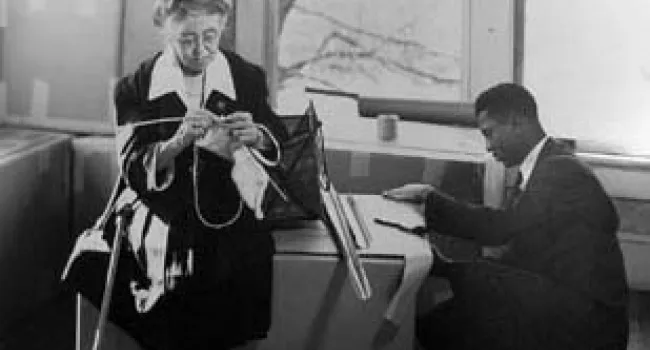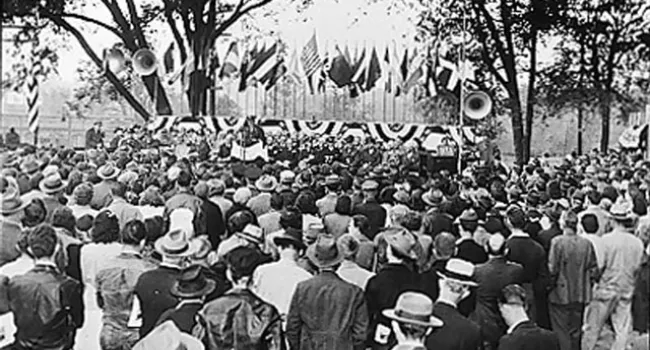
The enlistment of men into the armed forces caused a labor shortage in industry and agriculture, which were both rapidly expanding production to meet wartime needs. For the first time, many women entered the industrial workforce, and efforts of the Office of War Information to recruit them into these jobs made the character "Rosie the Riveter" famous. In South Carolina, the most pressing need was for help to harvest the crops. Students at Wofford College were excused from classes to pick the cotton crop in Spartanburg County in 1942. Three hundred students picked 15,000 pounds of cotton in one day.
Courtesy of the National Archives and Records Administration.
Standards
- 5.3 Demonstrate an understanding of the economic, political, and social effects of World War II, the Holocaust, and their aftermath (i.e., 1930–1950) on the United States and South Carolina.
- This indicator was designed to promote inquiry into the devastation of the Great Depression and the impact of the New Deal on a largely agricultural South Carolina. This indicator was also designed to foster inquiry into the economic diversification between World War II and the present, to include tourism, global trade and industry, and the maintenance of military bases.

